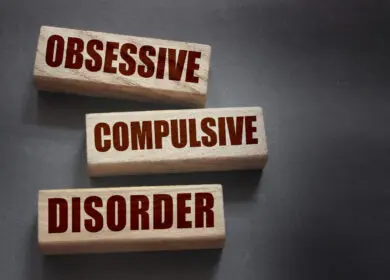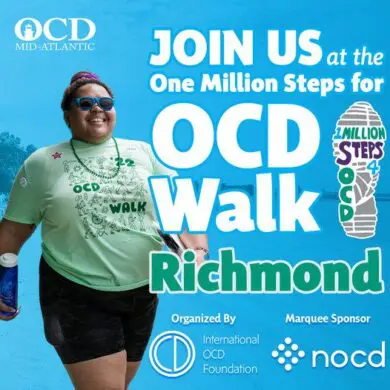According to the National Institute of Mental Health, Obsessive-Compulsive Disorder (OCD) affects 2-3% of the population across their lifetime. The disorder is characterized by a pattern of unwanted thoughts or fears (obsessions) that cause an individual to perform a set of repetitive behaviors (compulsions). OCD can interfere with a person’s daily activities and lead to significant distress. And like most mental health challenges, OCD can affect anyone regardless of their age, race/ethnicity, or socioeconomic status.
Signs and Symptoms of OCD
Being aware of the signs and symptoms of OCD can help individuals understand what they’re experiencing and whether to seek out professional treatment. People who are diagnosed with OCD typically experience both obsessions and compulsions.
Obsessions are persistent and repeated unwanted thoughts, urges, or images that cause a person to feel stress or anxiety. Though you may try to ignore these mental intrusions, most people with OCD relieve the stress and tension by performing a compulsive behavior or ritual.
The following are common symptoms of obsessions:
- Fear of being contaminated by an object they just touched
- A strong feeling of doubt or uncertainty, i.e. you’re on your way to work and become overcome by the idea that you left the front door unlocked
- An intense need to have objects orderly or arranged in a specific way
- Intense thoughts or imaginings of losing control and harming yourself or others
- Thoughts of acting inappropriately, such as shouting obscenities in public
Compulsions are repetitive behaviors that an individual feels driven to perform in an effort to relieve the stress triggered by their obsession or to stop something bad from happening.
Some of the most common symptoms of compulsion are:
- Repetitive behaviors – This includes performing a task, from putting down an object to walking in/out of a room, repeatedly until it feels just right.
- Washing and cleaning – Some individuals may develop sores from frequent hand-washing.
- Checking and rechecking, such as ritually validating that you set your alarm, locked the door, or turned off the stove
- Counting rituals
- Ordering/arranging, i.e. rearranging items over and over again until you feel they are just right
Is it Time to Get Help?
Some people confuse perfectionism – a driving urge to have flawless results or a perfect performance – with OCD. We’ll sometimes hear someone say “I’m so OCD” because they’re striving for perfection. While perfectionism may be indicative of an obsessive disorder, those with multiple symptoms of OCD often feel “stuck” in every step of their day.
At Sunstone, not only is our team of counselors trained and ready to help individuals grappling with OCD, we’re also supporting our community. On Oct. 15, members of our Richmond team will participate in the One Million Steps for OCD Walk to increase awareness and raise funds for the International OCD Foundation.
If you or someone you know has been diagnosed with OCD or you think you or they may have OCD based on these symptoms, you are not alone. Please reach out to Sunstone to find the right counselor that can guide you to a brighter tomorrow.






